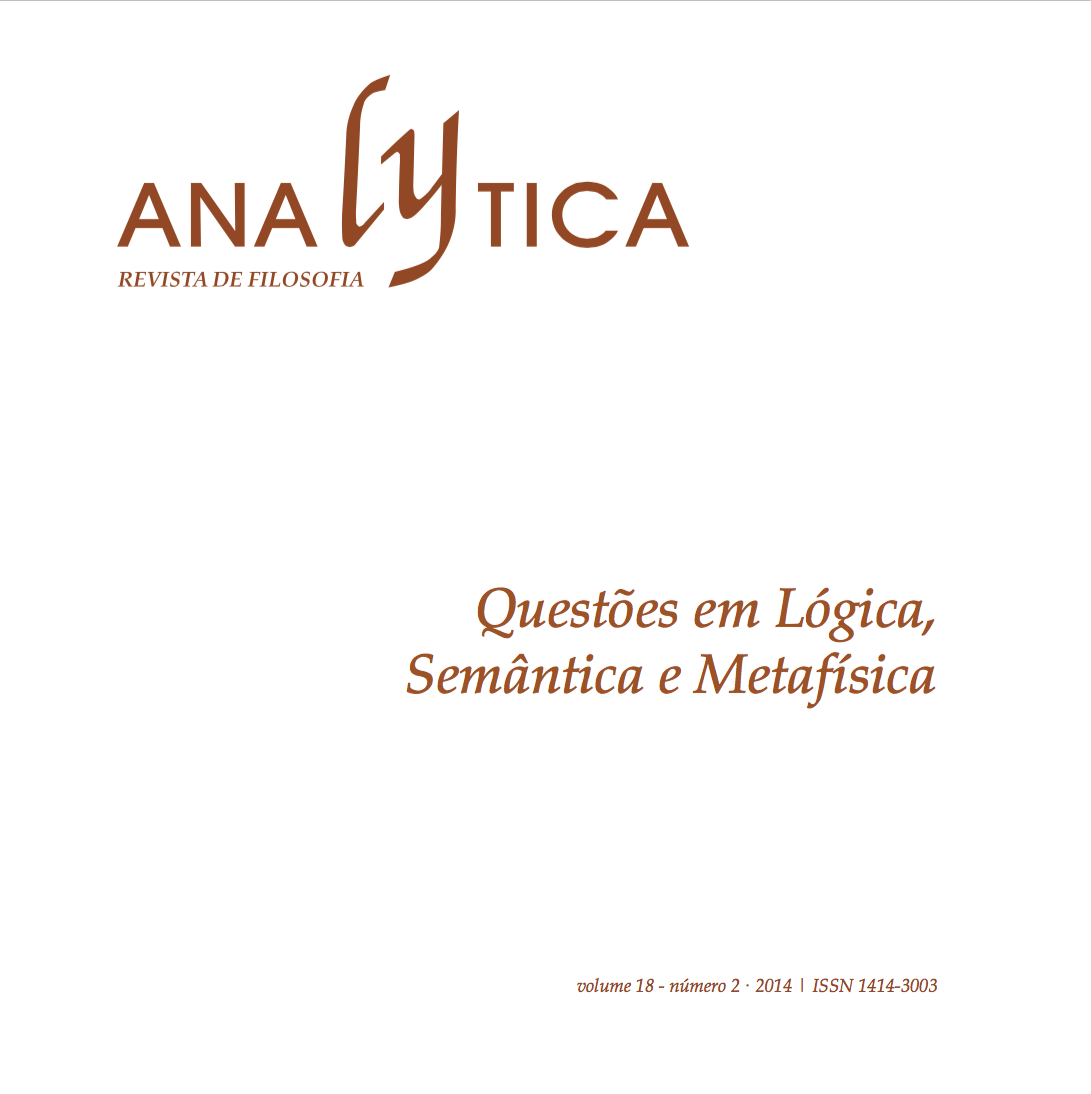Kant's “Self” as a Being in the World
Palavras-chave:
Kant, eu, objeto, idealismo, realismo, ser no mundo, self, object, idealism, realism, being in the worldResumo
De acordo com Kant, o idealismo é um “escândalo da filosofia”. Ao contrário de Hume, Kant não se satisfaz em notar que seres humanos não são capazes de abandonar suas crenças em coisas externas na vida prática. Kant pretende oferecer uma prova satisfatória da existência de coisas externas. Neste artigo, eu argumento que a prova definitiva da existência de coisas externas que Kant tem a oferecer está fundamentalmente conectada à sua nova concepção do eu empírico como um ser no mundo (Weltwesen), uma concepção que emerge na segunda edição da primeira Crítica e é completamente articulada nas Reflexões de 1788 em diante. Para mostrar isso, eu analiso a Refutação do Idealismo na Crítica ao Quarto Paralogismo da Psicologia Transcendental, a teoria kantiana da cognição de existências por inferência, a teoria crítica do “objeto” e a Refutação do Idealismo de 1787 em diante.
Abstract
According to Kant, idealism is a “scandal of philosophy”. Unlike Hume, Kant is not satisfied to point out that human beings are not capable of abandoning their belief in outer things in practical life. Kant aims to offer a satisfactory proof of the existence of outer things. My claim in this paper is that Kant's definitive proof of the existence of outer things is fundamentally connected to his new conception of the empirical self as a being in the world (Weltwesen), a conception that emerges in the second edition of the first Critique and is fully articulated in Reflections from 1788 onward. In order to make my point, I analyse the Refutation of Idealism in the Criticism of the Fourth Paralogism of Transcendental Psychology, the Kantian theory of inferential cognition of existences, Kant's critical theory of the “object”, and the Refutation of Idealism from 1787 onward.
Enviado em: novembro de 2014
Aprovado em: setembro de 2015
Downloads
Referências
ABELA, P. 2002. Kant's Empirical Realism. Oxford: Oxford University Press.
ALLISON, H. E. 2004 Kant's Transcendental Idealism: an interpretation and defense. Revised and enlarged edition. Michigan: Yale University Press.
CARL, W. 2006. “Kant's Refutation of Problematic Idealism: Kantian Arguments and Kant's Arguments against Skepticism”. In: BIRD, Graham. A Companion to Kant. Oxford: Blackwell Publishing, pp. 182-
EMUNDTS, D. 2010. “The Refutation of Idealism”. In: GUYER, P. The Cambridge Companion to Kant's Critique of Pure Reason. Cambridge: Cambridge University Press, pp. 168-189.
GUYER, P. 1987. Kant and the Claims of Knowledge. Cambridge: Cambridge University Press.
HUME, D. 2000. A Treatise of Human Nature (THN). New York: Oxford University Press.
KANT, I. 1998. Critique of Pure Reason (KrV). Cambridge: Cambridge University Press.
KANT, I. 2005. Notes and Fragments (Refl). Cambridge: Cambridge University Press.
NOZICK, R. 2001. Invariances: The Structure of the Objective World. Massachusetts: Harvard University Press.
Downloads
Publicado
Como Citar
Edição
Seção
Licença
Os autores que publicam nesta revista concordam com os seguintes termos:
- Os autores mantêm os direitos autorais e concedem à revista o direito de primeira publicação, com o trabalho simultaneamente licenciado sob a Licença Creative Commons Atribuição-SemDerivações 4.0 Internacional (CC BY-ND 4.0), que permite a redistribuição, comercial ou não comercial, desde que a obra original não seja modificada e que seja atribuído o crédito ao autor.
- Os autores têm autorização para assumir contratos adicionais separadamente para distribuição não-exclusiva da versão do trabalho publicada nesta revista (ex.: publicar em repositório institucional ou como capítulo de livro), com reconhecimento de autoria e publicação inicial nesta revista.
- Os autores têm permissão e são estimulados a publicar e distribuir seu trabalho online (ex.: em repositórios institucionais ou na sua página pessoal) a qualquer ponto antes ou durante o processo editorial, já que isso pode gerar alterações produtivas, bem como aumentar o impacto e a citação do trabalho publicado (Veja O Efeito do Acesso Livre).


